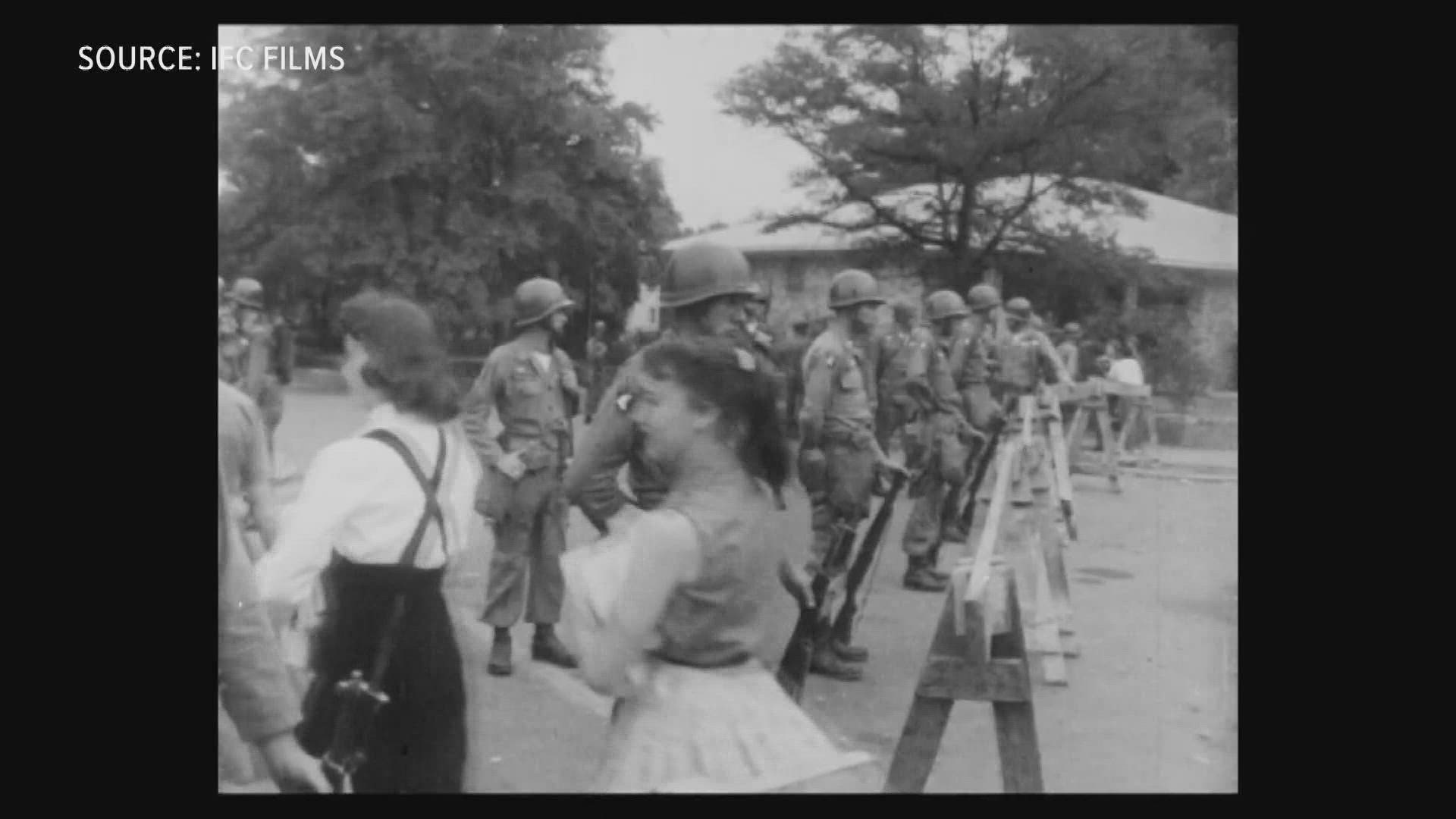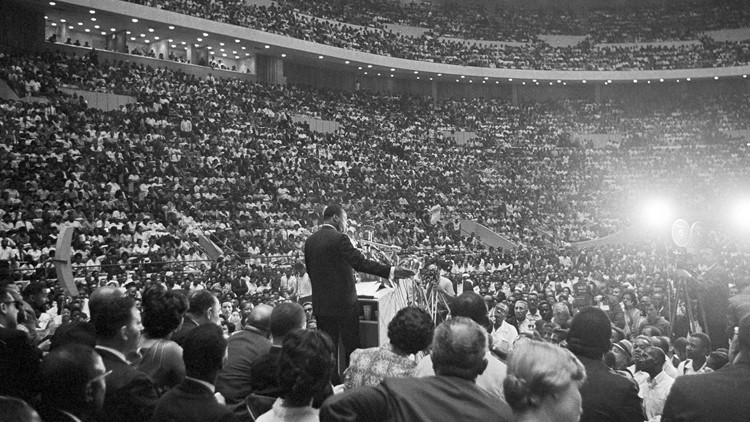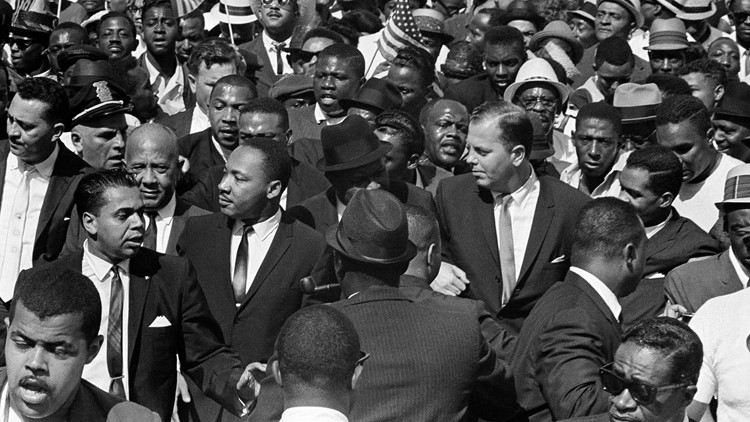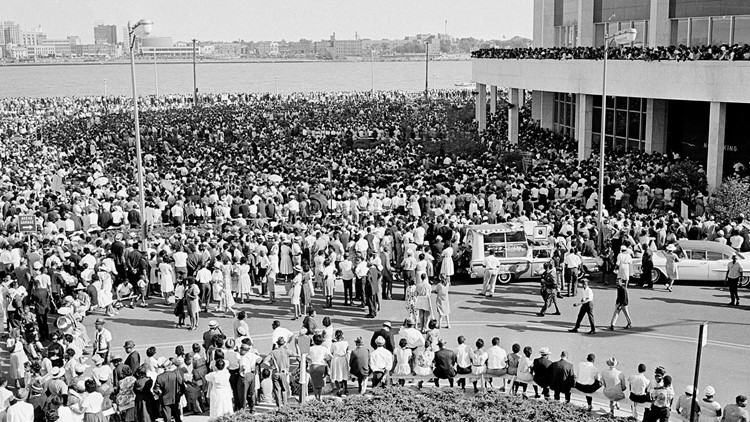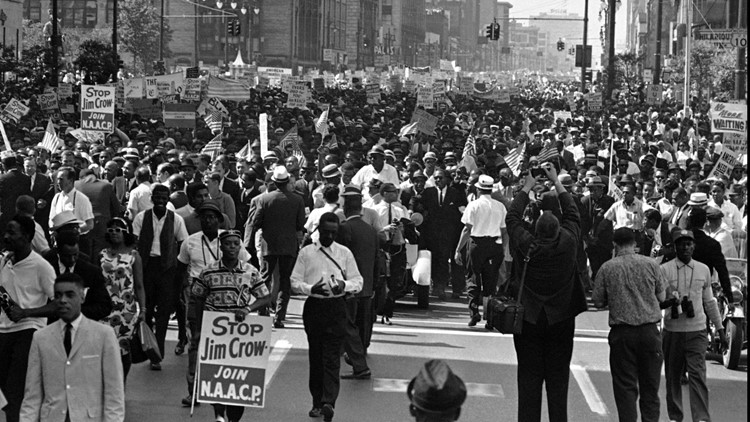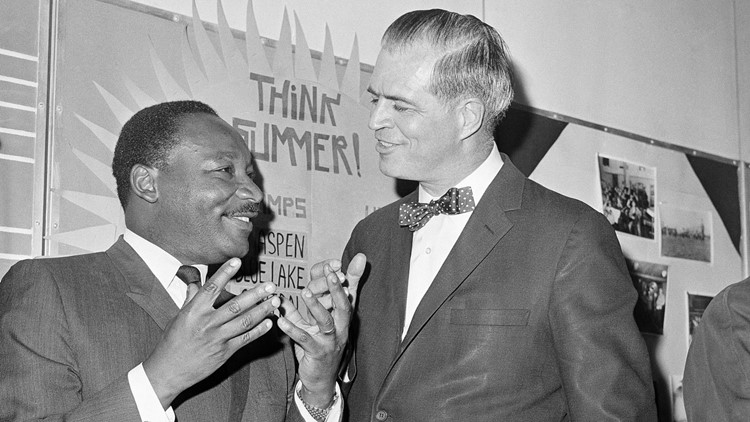DETROIT, Michigan — If asked to recite a selection from Martin Luther King Jr.'s "I Have a Dream" speech, few would likely struggle to do so.
King's 1963 address to the crowd assembled before the Lincoln Memorial numbers among the most instantly recognizable speeches in the national canon.
Few know, however, that was actually the second time he'd occasioned to deliver it.
In fact, King delivered an early version of his seminal address to the smaller, but still substantial crowd of 125,000 that gathered at Cobo Hall in Detroit on June 23, 1963, weeks prior to his famed Washington, D.C. address.
MLK in Detroit 1963
Elizabeth James, now the program manager of the Department of Afro-American and African Studies at the University of Michigan, was in the audience with her grandmother.
James reflected upon King's message, the role Michigan played in crafting his enduring legacy and the work still ahead in an interview with 13 ON YOUR SIDE Monday.
"There was such a feeling of warmth, and solidarity, and people singing and marching," James said of the event. "And, to me, it was like we were having a great party."
Despite the lighthearted atmosphere, James understood the reality of the situation. In May 1963, images of police dogs and fire hoses opened on children demonstrating for equal rights had captivated the national dialogue.
A group of prominent Detroit ministers hatched a plan to stage a march that summer. Organizers decided on June 23, to commemorate the anniversary of the 1943 Detroit Race Riots 20 years earlier. Then-governor George Romney would declare it Freedom March Day in Michigan.
"There was a lot of buzz about it because it was the first time that a lot of different groups were gathering together," James said.
The crowd that gathered in Detroit became the largest civil rights demonstration in the nation's history at that time. The record would be broken weeks later by King's infamous speech in Washington.
The speech became a watershed moment. When President Lyndon Johnson put pen to paper a year later, it would spell the end of segregation as the Civil Rights Act of 1964 became the law of the land.
Legislation that followed would transform everything from voting rights to housing.
"There's many ways that you find people who are teachers, and that's a moment where I think we all were taught a beautiful lesson," James said. "It just really kept me inspired all through my life."
For James, King's message continues to be relevant to issues of race today.
"I had hoped, you know, that the children of today wouldn't have to experience the things that I did when I was young…we're on the path," she said. "And sometimes you take a step forward and back, but you're still moving a little bit ahead each day."
Watch the full interview with Elizabeth James here:
RELATED VIDEO:
►Make it easy to keep up to date with more stories like this. Download the 13 ON YOUR SIDE app now.
Have a news tip? Email news@13onyourside.com, visit our Facebook page or Twitter. Subscribe to our YouTube channel.

